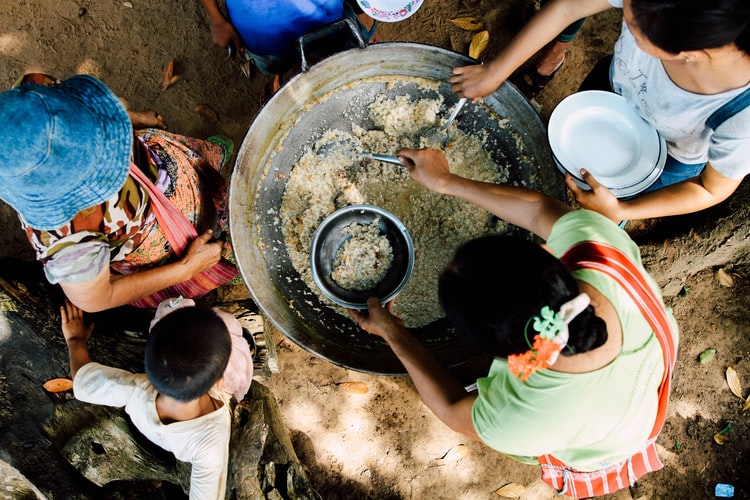On October 23, 2020 the Swedish FAO Committee together with SIANI organized an online event to commemorate World Food Day 2020, gathering a multi-stakeholder line-up of Swedish actors working with food security and development internationally and in Sweden. The webinar was moderated by Kajsa Johansson, Chief Senior Advisor at We Effect.
On this World Food Day, the basic question is: Why are people starving in a world full of food? (…) What happens after a year of bad harvest? Food can be available in another part of the country or imported. But a poor farmer has no money to buy it.
Opening the event, Per Callenberg, State Secretary to the Swedish Minister for Rural Affairs, quoted Olof Palme’s speech on World Food Day in 1983, these words could be easily re-used to depict today’s situation. Many years have passed, but hunger, armed conflicts and climate degradation remain among humanity’s biggest challenges. The COVID-19 pandemic increased the pressure on the already fragile food systems and vulnerable communities.
“There is still time for transformation, but change must happen fast,” said Gustav Lindskog, Expert for Food Security and Livelihoods at Sida. Smallholder farmers require particular attention, occupying only 7% of the world’s agricultural land but representing 70% of all people in the agricultural sector. Two days before the online WFD event, the Swedish government presented a support package worth SEK 170 million to support the initiatives combatting the increasing risks of hunger in the world through collaboration with WFP, IFAD and Sida.
Sustainable agriculture needs economic incentives. Profitability is key for youth engagement. Policies have to support investment in production, making sustainable choices easy and affordable to consumers. Governments have to understand that food systems and people’s nutritional status provide the basis for a prosperous economy. “All budgets need to be redirected towards sustainable approaches, especially focusing on sustainable food production, tailored to local needs,” said Maximo Torero, Chief Economist at FAO. He also underscored the critical role of cross-sector and multi-stakeholder collaboration, both internationally and domestically.
As reminded by Elisabeth Hidén, President of the Swedish Youth Agriculture Organisation, Sweden can share its experience as a country that overcame hunger, not the least, by utilizing nitrogen-fixing legumes and scaling-up other innovations. In line with that, Anna Tibblin, General Secretary at We Effect, added that two out of three Swedes are now willing to pay more for food produced by smallholder farmers. She also noted a growing global awareness about the importance of supporting the most vulnerable people, which can provide a window of opportunity for shifting the focus to sustainable production and resilience.
Schools can be a powerful ally in combatting hunger: not only in providing children with nutritious meals but also in teaching about sustainable production and consumption choices. “Focusing on children and women is crucial for a rapid reduction of hunger and malnutrition,” said Katarina Eriksson, Project and Partnership Development Director at Tetra Laval Food for Development.
Digital tools and communication technologies can connect all actors across a food value chain, improving their work. These tools should be used wisely, as shown by Zoole Newa, responsible for Agricultural Market Development and Inclusive Growth at the Swedish Embassy of Zambia and project manager of the Sida-funded DAZ (Dairy Association of Zambia). His Digital Information Management System enables farmers to access market information, digital extension services, and keeps the record of farmers’ work to tailor extension services to their specific needs as well as paying them according to accurate information.
Only if and when all actors work hand in hand will we get a chance to reduce poverty and end hunger. It is time to build back better and work towards food systems that don’t merely produce more food but are sustainable, resilient and can overcome future shocks. This way, we can ensure that COVID-19 doesn’t annihilate the development efforts of the previous decades and no one is left behind.
Watch the recording of the webinar and review the presentations
Reporting by Magdalena Knobel, communications intern at SIANI. She is currently doing a Master’s degree in Sustainable Food Systems programme at the Swedish University of Agricultural Sciences, SLU.
